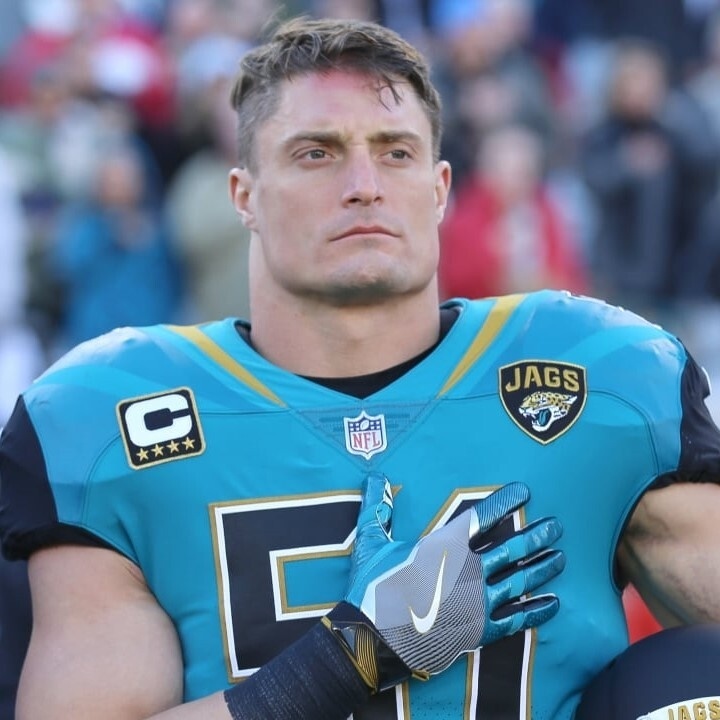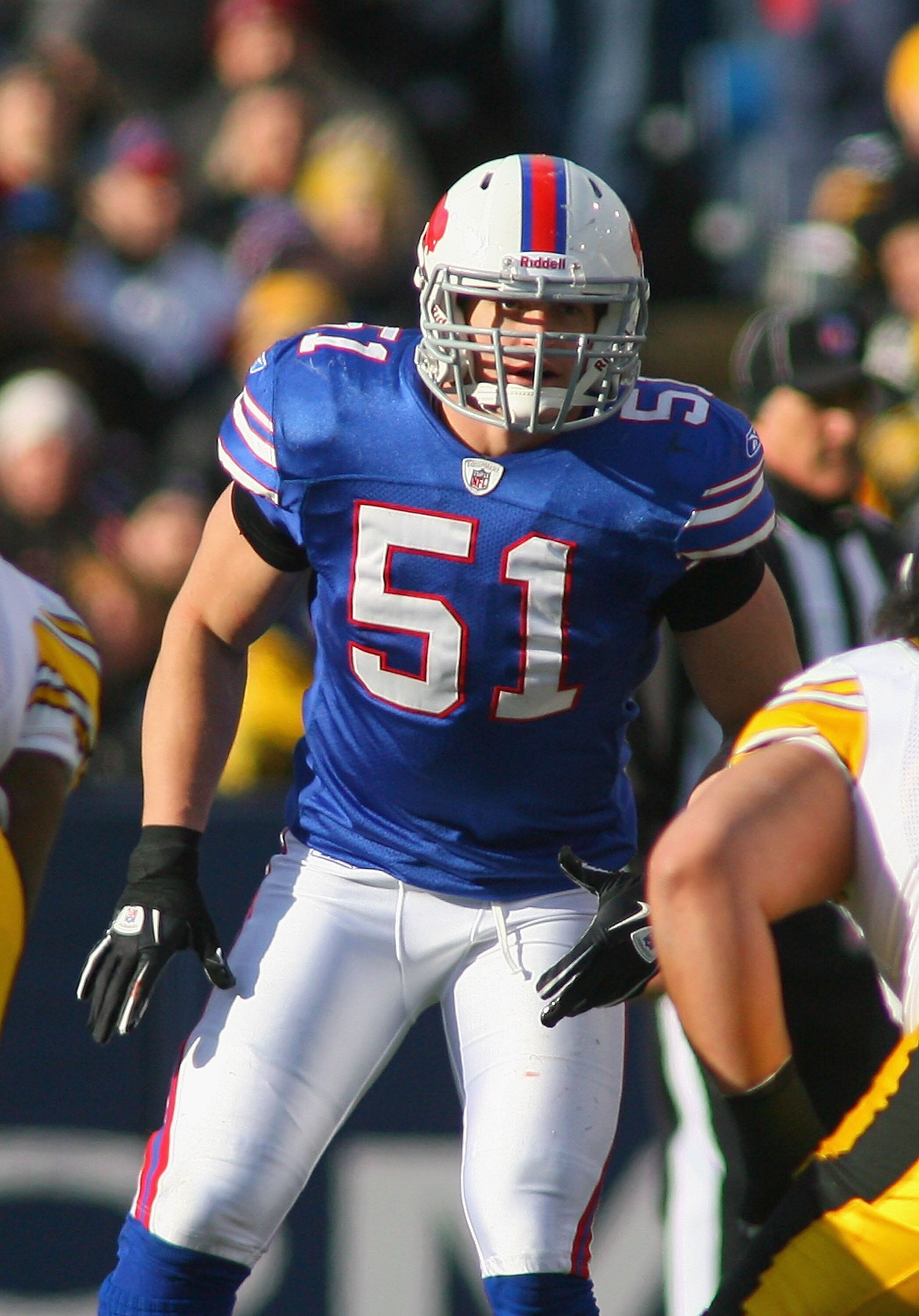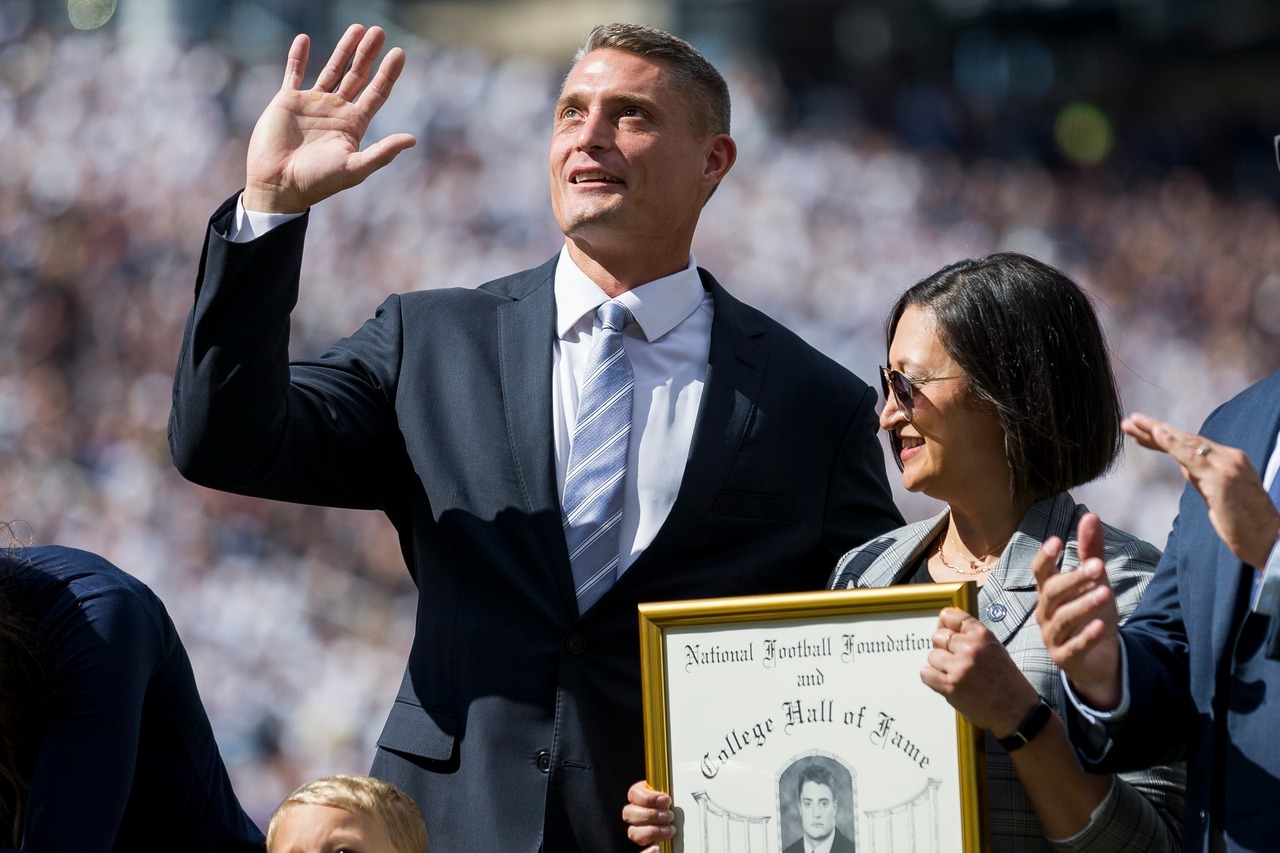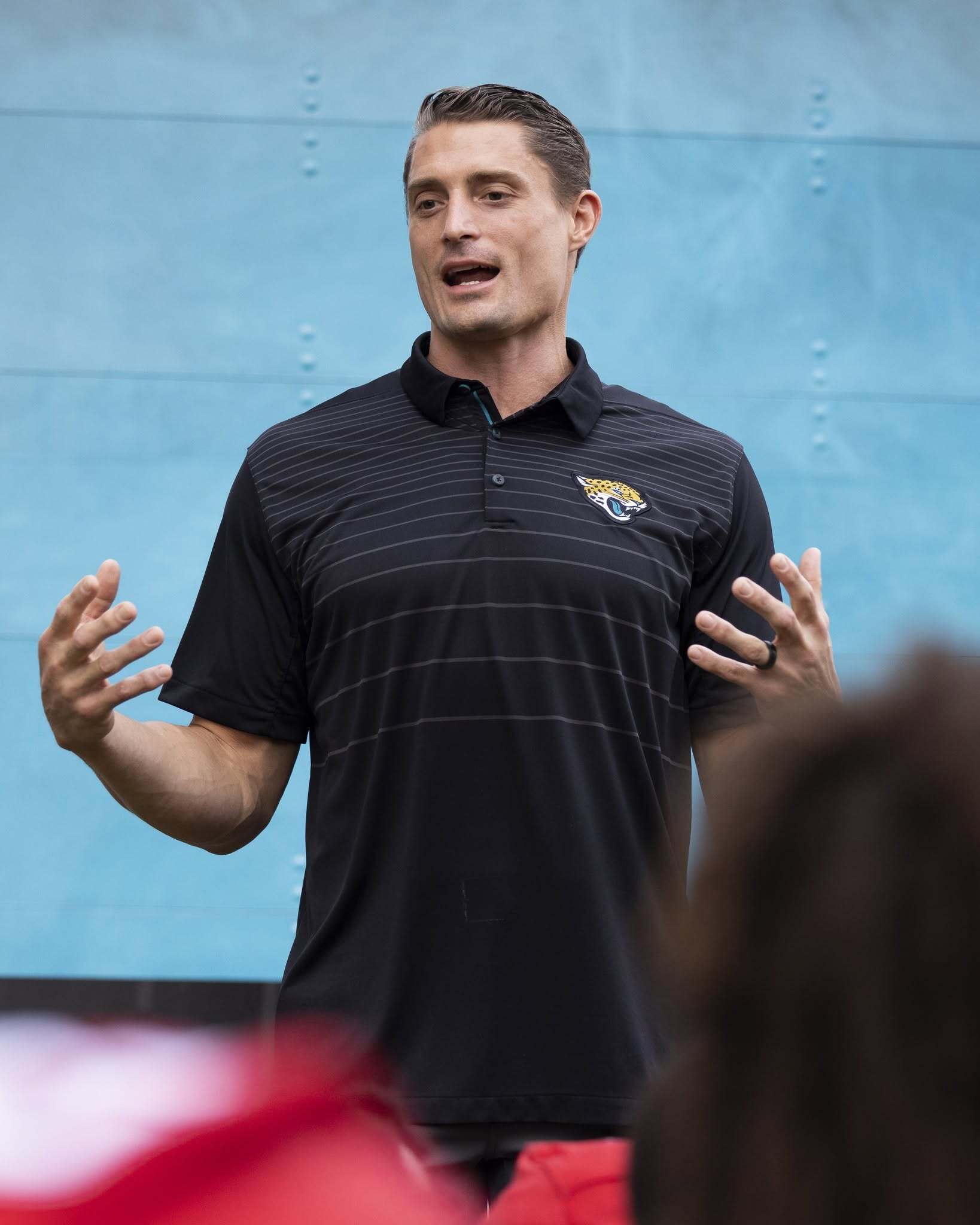
Catching Up With Former Player Rep: Paul Posluszny
Paul Posluszny is a former NFL linebacker and Penn State football legend, known for his intelligence, toughness, and leadership. At Penn State, he was a two-time All-American, won the Chuck Bednarik and Dick Butkus Awards, and was inducted into the College Football Hall of Fame in 2024. Drafted by the Buffalo Bills in 2007, he later became a defensive cornerstone for the Jacksonville Jaguars, earning a Pro Bowl nod in 2013. After retiring in 2018 with over 1,200 tackles, Posluszny earned an MBA and now works in aerospace strategy at RTX. We caught up with Paul and he gave us insight into his life during and after football.

What inspired you to become a Player Representative?
When the opportunity came up, I was one of the oldest members of the team. It was a chance to get involved with some of the important aspects that the NFLPA is connected to. I wanted to ensure that the guys on the team were informed of all the different things that could affect them and make sure they were taken care of, not just on the field, but more importantly, off the field. It was an opportunity to help make sure players knew what resources were available to them and to do the best job possible at communicating that information.
What lessons and experiences did you take away from being a Player Representative?
Ultimately, I learned the importance of understanding all the resources the NFLPA offers. There are so many different things that are offered to us. It’s also about helping teammates recognize the opportunities available to them and, more importantly, helping them determine what’s most relevant to their individual needs outside of football. Some guys are all-in on continuing education and exploring careers outside of football. Others are more focused on understanding how to get their 401k squared away or making sure their family is taken care of from a benefits standpoint. The key was to understand each player’s priorities and guide them toward resources that matched what opportunities they were targeting.
Why do you think more players should be involved or active with the NFLPA?
Most importantly, because it can shape your career above and beyond football. The game ends for all of us at some point, but the NFLPA continues to provide support no matter where you are in your career or life after the NFL. It’s also about passing that knowledge forward. As a 32-year-old player nearing the end of my career, I could help the 22-year-old who just walked into the locker room and doesn’t even know where the restroom is yet. It’s a mix of maximizing opportunities for yourself while also being able to help others do the same along the way.

What is one piece of advice that you have for players transitioning out of the NFL?
I could talk about this for hours. I would strongly recommend setting aside dedicated time to develop a plan, or at least an idea, of what you want to pursue post football. When it ends, it ends. And while you’re not alone, it’s still your responsibility to figure out your next steps. When you’re on a team, everything is structured for you. Practice, nutrition, workouts, recovery. You have a nutritionist telling you what to eat, a strength and conditioning coach guiding your personal performance. Once you’re done, no one is telling you what to do anymore. The resources are there, but you have to take the initiative to explore and use them. Even if your plan isn’t fully developed, it helps to identify the areas you’re curious about or want to learn more about. You don’t need to have it all figured out. My 70-year-old dad still jokes that he’s still figuring out what he wants to be when he grows up. The point is to start somewhere and have an idea of what you want to learn more about.
What is one piece of advice you wish you had received when you started your NFL career?
I understood the importance of taking care of my body, at least conceptually. But if you could somehow transfer the detailed knowledge that a tenured veteran has about nutrition, sleep, hydration, training, and recovery to a 22-year-old rookie, it would be invaluable. At that age, you know you need to take care of yourself, but you don’t yet grasp the level of detail, precision, and discipline required. Accelerating that learning process early on could add years to a player’s career and be super beneficial.
What are you doing in your career now?
I work for Raytheon Technologies, specifically, the Raytheon defense business within RTX. Our corporate headquarters are in Arlington, near Washington, D.C., not far from the NFLPA. After I retired from football, I went back to graduate school and joined Raytheon as an intern. Fortunately, they haven’t asked me to leave yet. It’s been a great experience, because I am surrounded by great people. For example, the gentleman I report to is a former commander of a U.S. Navy nuclear attack submarine. I’m surrounded by incredibly capable people, all dedicated to the mission of supporting the Army, Navy, Air Force, and Marines with the equipment they need to defend democracy. It’s both an important mission and a great team to be part of.

How do you feel the lessons you learned playing football apply to your post-playing career?
They all transfer completely, just in a different form. In football, persistence and resilience mean getting knocked down by a 310-pound man and getting up to play the next snap. In the corporate environment, it’s about adapting and improving for the next time when things don’t go your way. Everything you learned in a high-pressure, competitive environment, which is probably all athletics, especially when your job is on the line, can be applied in a corporate setting. Mindset and discipline carry over seamlessly.
What does the NFLPA fraternity mean to you?
Most importantly, it means knowing there’s a support network available to you. You are not alone. The people at the NFLPA have gone through the same challenges and thoughts. They are fully dedicated to supporting you in your transition and thrive beyond the playing field. That support is invaluable.